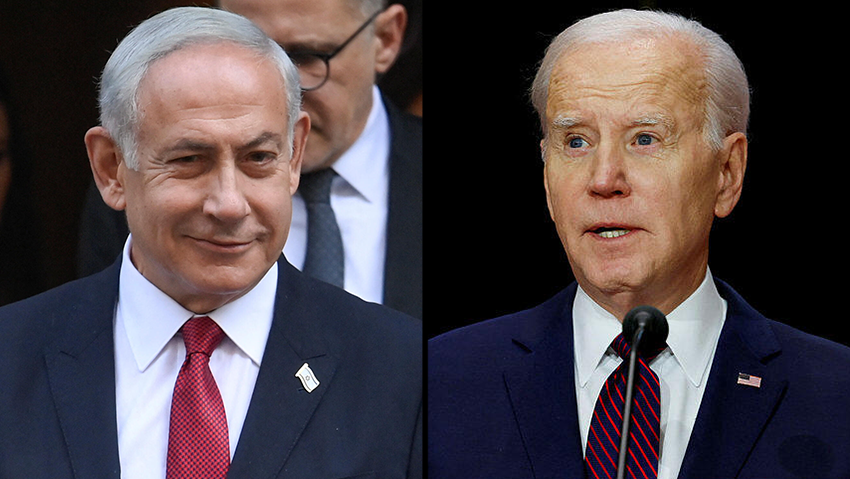Getting your Trinity Audio player ready...
The Biden administration is reassessing U.S.-Israel ties, said award-winning New York Times journalist Tom Freidman. In a column published on Tuesday. Freidman is considered one of the most important commentators in the world, not least because of his access to U.S. President Joe Biden.
More Stories:
Friedman had covered Israel and the Middle East extensively for decades as the Times's correspondent in Beirut and later in Jerusalem and has since often reported on events in the region. He has written often and critically about the Benjamin Netanyahu government, and although slammed by supporters of the prime minister, his access to the oval office is undeniable and is in the know about the president's views on critical matters.
Freidman's column comes ahead of the visit to Washington by President Issac Herzog. "I have no doubt that the U.S. president will arm the Israeli president with the message — out of sorrow, not anger — that when the interests and values of a U.S. government and an Israeli government diverge this much, a reassessment of the relationship is inevitable," Freidman wrote. "I am not talking about a reassessment of our military and intelligence cooperation with Israel, which remains strong and vital. I am talking about our basic diplomatic approach to an Israel that is unabashedly locking in a one-state solution: a Jewish state only, with the fate and rights of the Palestinians T.B.D.," he said.
Freidman said such a reassessment on the part of the administration would be based on interest and values and would be "tough love," but a necessity before Israel 'goes off the rails," using the analogy that former U.S. Ambassador Tom Nides used in an interview to the Wall Street Journal. The fact that Biden was prepared to express such criticism of Netanyahu ahead of the 2024 presidential election campaign, he said suggested the president believes he has the support of most Americans, most American Jews and even most Israeli Jews.
Herzog's visit to the White House, Freidman said was "Biden’s way of signaling that his problem is not with the Israeli people but with Bibi’s extremist cabinet."
Friedman spared no harsh words for Netanyahu in recent months over his coalition's legislative push to alter the balance of power and weaken the judiciary and said that if the prime minister " thinks he can snuff out Israel’s democracy just like that, he’s badly mistaken," Friedman wrote.
"The U.S.-Israel breakdown in shared values starts with the fact that Netanyahu’s ruling coalition, which squeaked into office by the narrowest of margins, decided to behave as if it had won a landslide and immediately moved to change the long-established balance of power between the government and the Supreme Court, the only independent check on political power," he said in his column.
Freidman went on to criticize the Netanyahu government's policies on the West Bank, once again echoing the outgoing ambassador's words. "Why should the U.S. continue to defend the idea in the U.N. and the International Court that Israel is just temporarily occupying the West Bank — and therefore is not practicing some form of apartheid there — when this Israeli government appears to be openly hellbent on annexing the West Bank and has given two of the most active annexationists, Smotrich and Ben-Gvir, extensive security and financial powers over settlements in that region?" Freidman asked.
"Netanyahu’s steady destruction of this shared fiction is now posing a real problem for other U.S. and Israeli shared interests: It threatens the stability of Jordan, a vital U.S. and Israeli interest. It is driving the Arab states that joined with Israel in the Abraham Accords to take a step back. It is giving the Saudis real pause about moving ahead with normalization with such an unpredictable Israeli regime."






